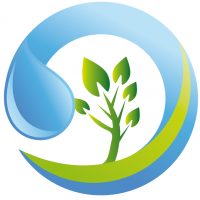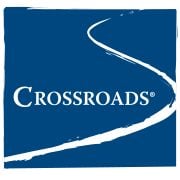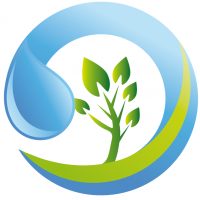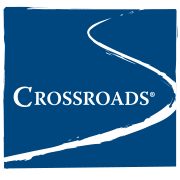Northeast Occupational Exchange - Portland
Drug Rehab Center in Portland, Maine
Northeast Occupational Exchange - Portland is an accredited drug and alcohol treatment facility in Maine that provides evidence-based treatments tailored to meet individual needs and offers aftercare support to help clients achieve long-term recovery.
Multiple patients have reported Northeast Occupational Exchange - Portland as permanently closed.
Research other rehabs in Portland, Maine, or get help finding an open facility.
About Northeast Occupational Exchange - Portland in Maine
Northeast Occupational Exchange - Portland, located in Portland, Maine, is an alcohol and drug treatment facility that is committed to helping individuals in recovery from addiction and substance abuse. They offer a variety of evidence-based treatments and services that are tailored to meet the individual needs of each of their clients. These services include individual and family counseling, group therapy, and cognitive-behavioral therapy. Additionally, they offer educational and support group meetings, as well as supervised detoxification, to help their clients achieve lasting sobriety and improve their overall quality of life.
The staff at Northeast Occupational Exchange – Portland understands that addiction is a chronic illness that requires intense and professional care and support. To that end, they provide evidence-based treatments that are designed to address the physical, psychological, and spiritual aspects of addiction. These treatments include medication-assisted treatment, relapse prevention, and psychotherapy and counseling. They also offer case management services and aftercare support to help their clients continue on a path of long-term recovery.
Northeast Occupational Exchange – Portland is accredited by the Commission on Accreditation of Rehabilitation Facilities and is licensed by the Maine State Board of Alcohol and Drug Counselors. Additionally, they have received several awards, including the Choose Help Award of Excellence for Outstanding Addiction Treatment Programs, and the Commission on Accreditation of Rehabilitation Facilities Award of Distinction for Community Supportive Care Programs. These awards and accreditations speak to the commitment of their dedicated and experienced staff to provide the highest level of care and support to their clients.
Genders
Ages
Modality
Additional
Conditions and Issues Treated
Opioid addiction has become a significant health problem in the United States. When a person’s life becomes unmanageable because of an opioid addiction, treatment can help them get sober. Treatment includes medical care and counseling.
“With so many people struggling with opioid addiction, we need more care and attention for those who want to quit. Opioid addicts often take opioids when they experience a painful injury – that’s how the cycle starts! When someone begins taking their medication differently than prescribed or takes an excessive amount of drugs, it means they’re hooked on drugs and in danger of overdosing.
The most successful way to beat this is through detoxing from these types treatments at Northeast Occupational Exchange - Portland in . Most facilities start by using medical support during the process while providing counseling services; rehabilitation comes later on after treatment has been completed successfully.
Levels of Care Offered
This center offers a variety of custom treatment tailored to individual recovery. Currently available are Drug Rehab, Inpatient, Outpatient, with additional therapies available as listed below.
Going to an inpatient rehab facility means living there while all aspects of addiction or co-occurring disorder get addressed. The treatment involves medical supervision, therapy, and future planning.
This type of rehabilitation provides a drug-free environment for people who struggle with chronic/long-term addiction without having access to drugs outside the center (or their own home). It takes away any distractions because they live there 24 hours per day. If someone is trying to break out old habits, which could lead them back into substance abuse, things like jobs or school can be put on hold until after they complete their stay to focus solely on recovery.
Outpatient programs at Northeast Occupational Exchange - Portland, the Portland resident can live with their family while continuing with their job or studies. Treatment includes educating the patient on drug abuse, medications, and counseling sessions at the individual or group level. Outpatient treatment plans cover diagnosis, detoxification, management, and counseling. They are a popular option for those who have graduated from inpatient facilities.
Therapies & Programs
Individual therapy is a form of counseling where you meet with a trained professional one-on-one. Meeting with a therapist in this setting allows for a personal and trusting relationship to be built. This allows the patient to open up about sensitive or private issues they may not feel comfortable discussing in a group. Individual therapy helps identify the root causes of your addiction, which can help prevent relapse.
Couples therapy for drug addiction is a unique form of therapy that allows family members to work through the emotional issues of their loved one’s addiction together. Family members can support each other while learning how to cope with the addiction and encourage healthy changes. The two will work with a therapist to learn how the addiction affects themselves and the relationship.
Family therapy is often done alongside drug treatment to help addicts stay sober. The goal of family therapy for drug addiction is to create an environment where communication can happen without judgment, hostility, or blame. The therapist will sit with the family so they can learn how to communicate differently and provide new tools for dealing with emotions so that people don’t want to drink or do drugs. It’s important for families to focus on relapse prevention plans during treatment so that if the addict feels like they want to use again, they’ll know what steps they need to take together to prevent it from happening again in the future.
Group therapy sessions are another common addiction recovery service. These group sessions typically involve six to 12 addicts who meet regularly with a trained professional for support and guidance.
During these sessions, the group shares their experiences with one another and provides feedback that can help each member avoid relapse or overcome specific obstacles they are facing in their recovery process. With this type of support and guidance, addicts can feel like they are part of a community that understands their struggles and will help them get through the hard times.
Cognitive Behavioral Therapy (CBT) focuses on the underlying thoughts and behaviors that caused the problem of addiction in the first place and may cause a relapse. Negative feelings are common in drug abuse disorders, but they can lead to co-occurring disorders if not recognized. CBT involves strategies that help to change the behavior pattern by restructuring negative thoughts into positive ones. It helps to remove these feelings, and it provides long-term benefits. Also, CBT promotes self-awareness and self-control. It can be administered as a monotherapy or as part of combination therapy.
CBT can improve the patient’s mood, reduce drug cravings and boost success rates on treatment plans. Regular practice can help individuals handle negative attitudes, thoughts, and feelings without turning to drugs or alcohol. The core belief of Cognitive Behavioral Therapy (CBT) is that one’s moods, behaviors, and actions are all connected. Individuals can improve their quality of life using CBT. It helps addicts understand the patterns of thought and feelings that cause them to use drugs or alcohol and develop a healthy response.
Northeast Occupational Exchange Associated Centers
Discover treatment facilities under the same provider.
- Northeast Occupational Exchange -Newport in Newport, ME
- Northeast Occupational Exchange - Lincoln in Lincoln, ME
- Northeast Occupational Exchange -Lincoln in Lincoln, ME
- Northeast Occupational Exchange -Bangor in Bangor, ME
- Northeast Occupational Exchange - Bangor in Bangor, ME
Learn More About Northeast Occupational Exchange Centers
Additional Details
Specifics, location, and helpful extra information.
Portland, Maine 4101 Phone Number(800) 857-0500 Meta DetailsUpdated November 25, 2023
Staff Verified
Northeast Occupational Exchange - Portland Patient Reviews
There are no reviews yet. Be the first one to write one.
Portland, Maine Addiction Information
Prescription opioid abuse is the most common form of substance abuse in Maine. More than 10% of these residents have also admitted to using prescription drugs for non-medical purposes. Between 2013 and 2014, 4 out of every 5 deaths in Maine were caused by illicit drugs. One in five high school students in Maine uses marijuana every single month.
More than 5,000 individuals struggling with drug addiction in Portland, Maine. In 2015, 11.5% of people over the age of 12 had used an illicit drug. The most commonly abused drugs in Portland are marijuana, cocaine, and heroin. Drug-related crime costs the Portland community $100 million each year. There are several treatment options available in Portland. The most common type of treatment is inpatient rehab.
Treatment in Nearby Cities
- Rockport, ME (69.3 mi.)
- Gray, ME (16.0 mi.)
- Yarmouth, ME (10.4 mi.)
- Stow, ME (50.0 mi.)
- Calais, ME (181.4 mi.)
Centers near Northeast Occupational Exchange - Portland
The facility name, logo and brand are the property and registered trademarks of Northeast Occupational Exchange - Portland, and are being used for identification and informational purposes only. Use of these names, logos and brands shall not imply endorsement. RehabNow.org is not affiliated with or sponsored by Northeast Occupational Exchange - Portland.







